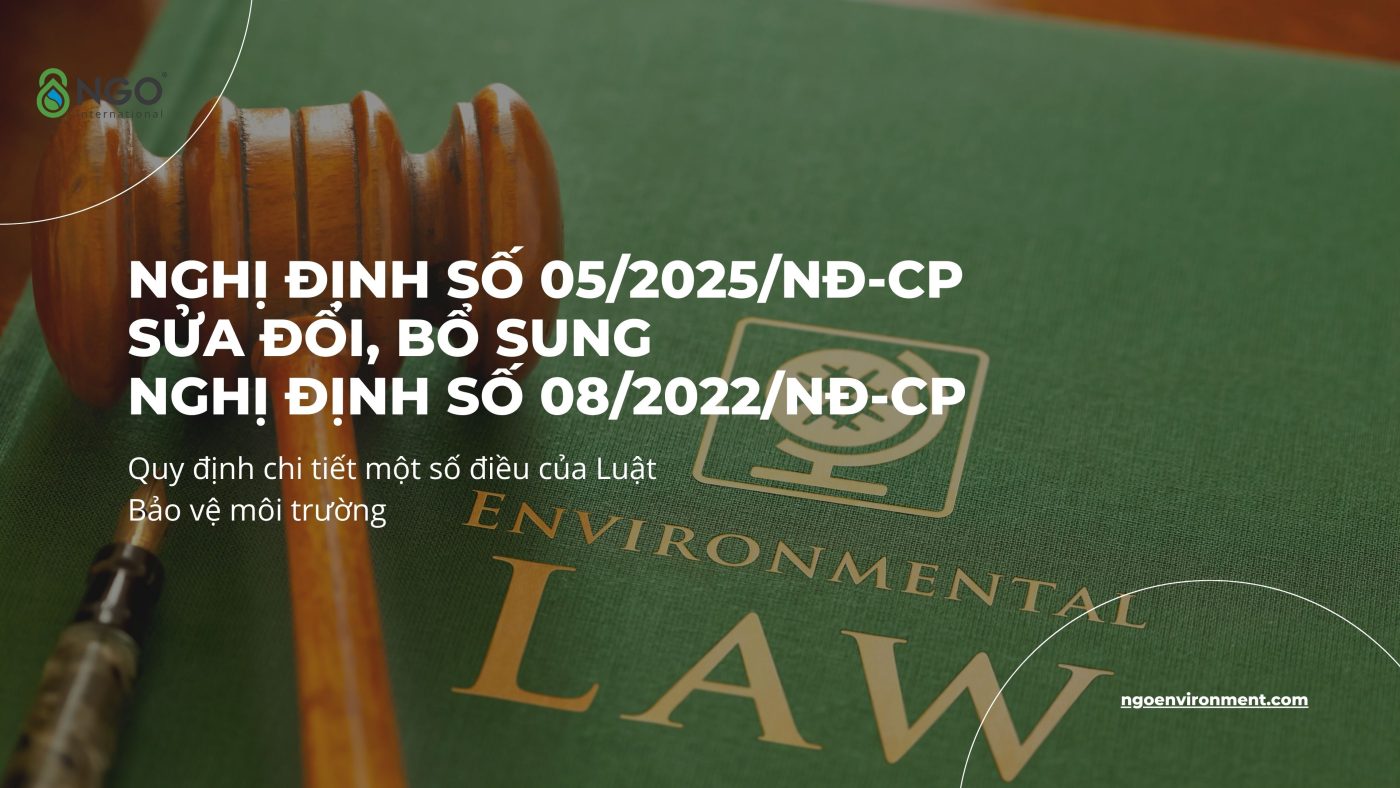1. WHY IS IT NECESSARY TO CARRY OUT AN ENVIRONMENTAL IMPACT ASSESSMENT?
Environmental impact assessment (called as EIA, in English is EIA-Environmental Impact Assessment) is the analysis, assessment and prediction of the environmental impact of an investment project or plan, and also, makes measures to minimize negative impacts.
This is an important point because competent agencies, organizations rely on this report to evaluate and decide whether this project is allowed to be built or not.
2. LEGAL BASES & APPRAISAL AGENCY FOR ENVIRONMENTAL IMPACT ASSESSMENT
EIA permit is guided and detailed in legal documents issued by the state agencies such as:
– Law on environmental protection No. 55/2014/QH13 issued on June 23, 2014.
– Law on Environmental Protection No. 72/2020/QH14 issued on November 17, 2020.
– Decree No. 18/2015/ND-CP issued on February 14, 2015. – Circular No. 27/2015/TT-BTNMT, issued on May 29, 2015 of the Ministry of Natural Resources and Environment.
– Decree No. 40/2019/ND-CP dated May 13, 2019, Appendix 2, section 1
EIA appraisal agencies (depending on the nature of the project), include:
– The Provincial People’s Committee appraises the projects built in the area.
– Ministry of Natural Resources and Environment: appraise the projects related to high-level state organizations according to regulations.
– Ministries and ministerial-level agencies: appraise the projects under their authority according to regulations. If there is not enough expertise to appraise, the Ministry can submit it to the Ministry of Natural Resources and Environment for advice.
– Ministry of Defense, Ministry of Public Security: appraise the projects that are national secrets, and other projects according to regulations.
3. OBJECTS REQUIRED TO PREPARE AN EIA REPORT
Objects required to carry out environmental impact assessment include 2 groups
– Group 1 is a project with a high risk of negative impact on the environment, specified in Clause 3, Article 28 of the Law on Environmental Protection No. 72/2020/QH14. Including:
- Projects in the form of production, business, and services that have the risk of causing environmental pollution with large scale and capacity; project to implement hazardous waste treatment services; Projects that import scrap from abroad as production materials;
- Projects in the form of production, business, and services that are at risk of causing environmental pollution with average scale and capacity but have environmentally sensitive elements; Projects that do not belong to the type of production, business, or service that are at risk of causing environmental pollution with large scale and capacity but have environmentally sensitive elements;
- Projects using land, land with water surface, and sea areas on a large scale or on a medium scale but with environmentally sensitive factors;
- Projects to exploit minerals and water resources with large scale and capacity or with medium scale and capacity but with environmentally sensitive factors;
- Projects that require changing land use purposes on a medium scale or larger but have environmentally sensitive factors;
- Projects which require large-scale immigration and resettlement.
– Group 2 is the project specified in Points c, d, dd and e, Clause 4, Article 28 of the Law on Environmental Protection No. 72/2020/QH14:
- Projects using land, land with water surface, and sea areas on a medium scale or on a small scale but with environmentally sensitive elements;
- Projects to exploit minerals and water resources with medium scale and capacity or with small scale and capacity but with environmentally sensitive factors;
- The project requires changing land use purposes on a small scale but has environmentally sensitive factors; The project requires migration and resettlement on a medium scale.
4. WHAT DO THE APPRAISAL REQUEST DOCUMENTS INCLUDE?
Below are the documents, reports that the enterprises and project investors need to submit to competent authorities. Including:
– 01 request for appraisal of the environmental impact assessment report made according to Form No. 05 Appendix VI Section I Appendix issued with Decree No. 40/2019/ND-CP;
– 01 feasibility study report or economic-technical report of the investment project or equivalent documents;
– 07 environmental impact assessment reports.
In case the number of appraisal council members is more than 07 people, the project owner must provide an additional number of environmental impact assessment reports.
5. CONTENT OF PRELIMINARY ASSESSMENT OF ENVIRONMENTAL IMPACT
– Confirm the origin and legality of the project, the Employer, and the techniques as used; Environmental impact assessment methods…
– Evaluate the suitability of the project’s location with regional planning, provincial planning and other legal regulations;
– Evaluate technology and project activities that have the potential to negatively impact the environment;
– Make survey of natural, socio-economic and biodiversity conditions; Assess the environment, affected objects, and environmental sensitive factors.
– Evaluate forecasts of main environmental impacts and waste generated by project phase; scale and nature of waste; impacts on historical-cultural relics and biodiversity; impacts due to site clearance, migration, and resettlement;
– Works and measures for collecting, storing and treating waste;
– Measures to minimize the project’s negative impacts on the environment; plans for renovation, recovery, prevention and response to environmental incidents.
– Management and supervision program; consultation results; conclusions, recommendations and commitments of the Employer.
6. CONSULTING SERVICES FOR PREPARING ENVIRONMENTAL IMPACT ASSESSMENT REPORTS (EIA)
NGO International Company Limited is the owner of consulting services and prepares environmental impact assessment reports quickly and accurately. We have a lot of experience in cooperating and deploying with many partners with high reputation, ensuring on schedule.
If you need to prepare or learn about an environmental impact assessment report, please contact us via hotline: 0969 867 924 or 0969 867 925.

 Tiếng Việt
Tiếng Việt





